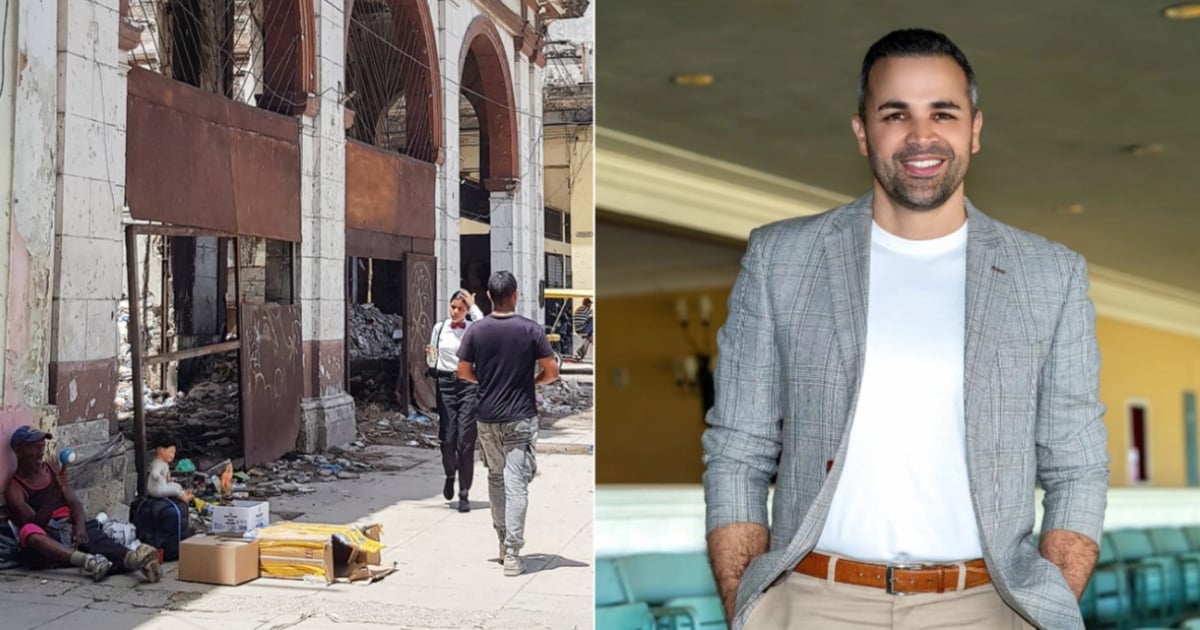"We were taught to beg, hidden behind the word 'resolve.' We were forced. I did it, I begged," declared Cuban actor and writer Lieter Ledesma in a poignant social media post. This post has vividly highlighted the deep-seated frustration that erupted following the recent statements made by Labor and Social Security Minister Marta Elena Feitó Cabrera. Ledesma, now residing in the United States, candidly depicted what has become a daily and systemic reality for millions of Cubans: the relentless humiliation of having to beg—from the state, from friends abroad, from any door that might open—for the basic necessities of life.
"The government begs, the officials beg, the athletes, the artists beg. An entire nation begs from the foreign friend: for a top-up, medicine, food... for life," he wrote.
Minister's Comments Ignite Outrage
The digital social uproar was a direct response to Minister Feitó's controversial remarks during a parliamentary session, where she claimed that in Cuba, "there are no beggars," and those who sleep on the streets or ask for alms are "disguised":
"They have found an easy way of life to earn money without working," she stated, a comment that was widely criticized as insensitive, arrogant, and disconnected from reality.
The reaction on social media was swift and overwhelming. Artists such as Luis Alberto García, Ulises Toirac, and Rigoberto Ferrera, along with intellectuals, journalists, and ordinary citizens, condemned the comments for denying the existence of extreme poverty on the island.
Presidential Rebuke
Facing mounting pressure, Miguel Díaz-Canel stepped in to distance himself from the minister during an address to the Parliament's Commission on Youth, Children, and Women's Equality Rights. Without naming her, he acknowledged: "The existence of homeless individuals is a real and undesired phenomenon in our society," adding, "I do not share some of the opinions expressed in the commission on this issue. It is counterproductive to make such judgments."
Additionally, Prime Minister Manuel Marrero Cruz responded by appealing to empathy, though he did not openly criticize Feitó. He reiterated that caring for the most vulnerable "is a priority" for the government and warned that "sensitivity must be action, not just a discourse."
Ministry's Silence
Despite the media storm, the Ministry of Labor and Social Security (MTSS) has remained conspicuously silent. Its official channels continue to promote topics such as multi-employment and the new Labor Code, without addressing the statements that have sparked widespread indignation.
"Begging Shouldn't Be a Destiny"
Lieter Ledesma's post has achieved something rare: exposing the truth without filters—not with statistics, but with lived experiences and shared pain. "Cubans long for a different country. For that dream to stop being a pipe dream. We shouldn't have to beg for what is rightfully ours," he concluded.
In a nation where scarcity has become the norm and dignity a luxury, begging is not hidden; it is normalized. And as Ledesma reminded us, that may be the deepest wound of all.
Key Issues in Cuba's Social Landscape
What prompted Lieter Ledesma's public statement?
Lieter Ledesma's statement was a response to the Cuban Minister of Labor and Social Security's controversial comments denying the existence of beggars in Cuba, which many found disconnected from reality.
How did Cuban officials react to the minister's remarks?
President Miguel Díaz-Canel distanced himself from the remarks, acknowledging the existence of homelessness, while Prime Minister Manuel Marrero Cruz called for empathy and action.
How has the Ministry of Labor and Social Security responded?
The Ministry has remained silent on the issue, continuing to focus on other topics like multi-employment and the new Labor Code, without addressing the widespread public outrage.
